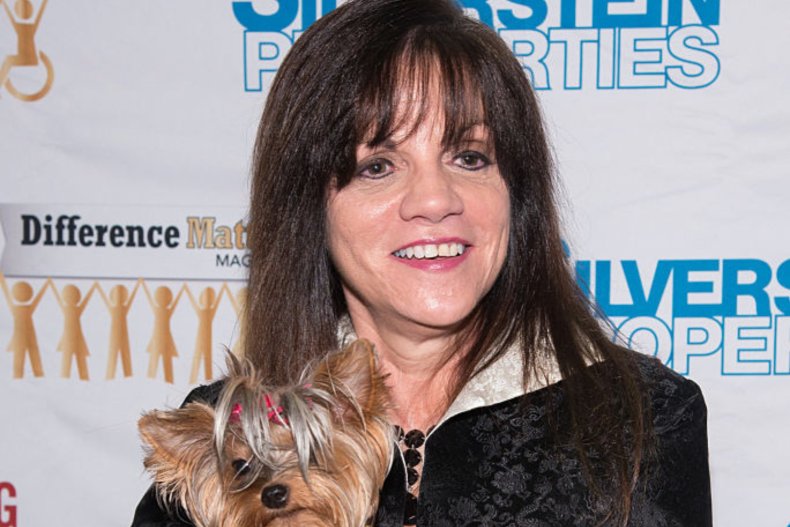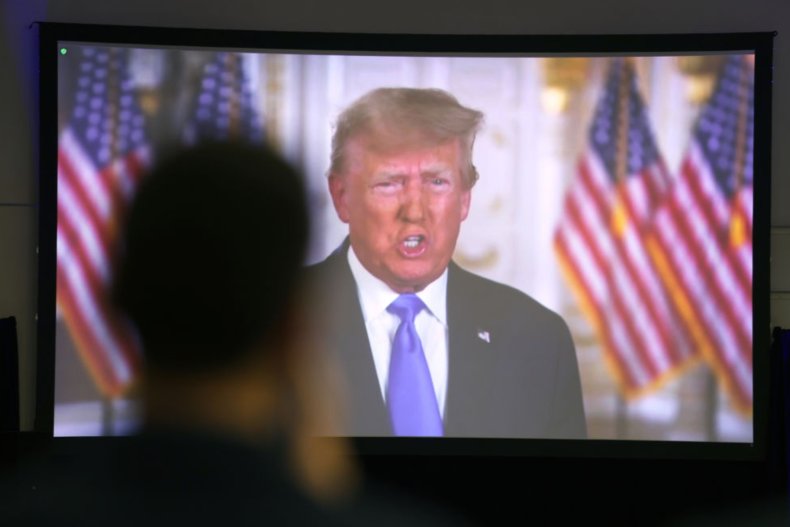'I Moved to Canada Because of Donald Trump'
I was one of millions glued to the television screen as Donald Trump arrived back in his hometown and mine, New York City, for his first arraignment on a host of criminal charges. Thirty-four, to be exact.
For many of us working and living in this city, we've heard decades of talk about his questionable business dealings. And as someone who previously published a real estate magazine there, I was privy to the complaints of numerous small business owners about the behavior of Trump's development company.
But on that Tuesday, the big screen TV I was watching was not located in New York City, or any other city, state, or town in the United States, for that matter. It was hanging on a wall in my new Canadian home.

Many people spoke of it, dreamed of it, even threatened it, but very few actually did it. And I had previously been one of them. In the year 2000, and then again in 2004, while living in a northern New Jersey suburb on a street named, of all things, Yellow Brick Road, my thoughts paralleled those of Kansas' wide-eyed Dorothy Gale, who fantasized about running away to a far-off land in The Wizard of Oz.
Perhaps, then, it's not coincidental that the message behind the iconic "Follow the Yellow Brick Road" is interpreted by many as a symbol for keeping one's sense of purpose and integrity through logical thinking: Yellow is a color that symbolizes intelligence, and creativity; brick represents something sturdy and reliable.
But while Dorothy longed to flee her humdrum family farm for one of animation and adventure, I yearned to escape a country that was then being ruled by a newly minted, controversial president, George W. Bush, who had won the election (twice) but could not win the popular vote once.
In fact, I was further concerned that he exhibited many of the qualities displayed by the three unlikely characters who joined Dorothy on her journey: No Heart, No Brain, and No Courage. Soon, America would suffer the worst terror attack in our nation's history.
On September 11, 2001, only eight months into Bush's presidency, and only 20 miles from my home, the World Trade Center towers crumbled into piles of burning metal, dust, and ash, leaving thousands of people dead amidst its fallen debris.
Still, I could not drum up the determination, the fortitude, and the wherewithal to cross borders. Too many family members and friends to leave behind. Too many details to work out. Too many fears of the unknown standing in my way. Further, where would I go?
Those who stood in solidarity with me often mentioned Canada. It was only a six-hour drive from where I was living, and Canadians have a reputation for kindness, compassion, and a strong conviction for truth.
Really, though: Canada? Where much of the country is frozen under a thick bed of snow and ice for most of the winter, a season that often brings snowfall from October through April, and sometimes even in May? I realize that the tri-state area isn't the warmest, but that much snow? NO!
But the results of a more recent election night compelled me to overcome my fears. On November 8, 2016, as I stood under the largest glass ceiling in the world at New York's Jacob Javits Center anticipating, along with thousands of others, the arrival of the first female U.S. president to figuratively break that historically impenetrable ceiling, the ominous screens hovering above ultimately revealed a very different outcome.
Instead of a ceiling breaking, we watched an escalator descending, falling into disbelief alongside it. Again, we got a new president who was not elected by a majority of our country's voters. But this time, there was a deeper sense of impending doom, as expressed by the elderly woman standing just to my right who immediately whispered to me: "I'm Jewish, I guess I'll now have to get a gun!"
I gasped.
I already distrusted Trump on anti-Semitism (i.e. initially failing to denounce former KKK leader David Duke), but he was also known for his anti-women remarks (i.e. the Access Hollywood "grab-em by the pussy" tape) and anti-LGBTQ comments (i.e. supporting as "very strong" North Carolina's move to make trans people use bathrooms that correspond with the sex on their birth certificate).
I'm not only Jewish, but also a woman, and gay. "Three strikes against me," I thought to myself. But there was yet another reason, a deeper reason, that compelled me to leave this time, despite any remaining challenges or fears.
My father.

My father was a man steeped in hyper-masculine bravado. A strong man, a "macho" man, he was compared by many who knew him to Jack LaLanne, the American fitness, exercise, and motivational speaker often referred to as the 'First Fitness Superhero' of the 1960s and '70s.
My father was also named Jack, and often referred to as a "hero" and "legend" by friends and neighbors. He was admired for his ability to run and complete marathons until the age of 65, yet our family superhero was also paralyzed by the most mundane things—unwilling or unable to drive a car, correctly dial a rotary telephone, or properly use a paper clip.
These lapses, which reflected basic abilities for most, kept him guarded and scared. His fear of being exposed and humiliated compelled him to control those closest to him by violently abusing and belittling us, all to help reduce his inner feelings of insecurity and shame. I had promised myself, after leaving his home decades earlier at the age of 21, that I would never be controlled by anyone like him again.
But now the country would be controlled by Trump who, like my father, behaved like a narcissist, continually seeking to insult, irritate, annoy, slander, attack and spread rumors about his targeted individuals.
Masked by a bravado devised to deceive and deflect, every time Trump publicly displayed similar behaviors, from ridiculing people with disabilities to insulting women for their appearance, it sent chills up and down my spine. Calling those he disliked "stiffs" or "animals", and those who saw through his bravado "low lives", were the exact same descriptors my father often used.
Further, when my father felt threatened by anything that could reveal his inabilities, his anxieties, his fears, he reacted by denying they existed, much like Trump, who called Democratic criticism of his handling of the pandemic "their new hoax"—terrified about the global health emergency ruining his re-election bid.
Yet, numerous family members, friends, and neighbors, upon learning of my intentions to flee, responded "you're just scared," "you're crazy," "you're overreacting."
But I persevered. Perhaps they were also fearful, like I had been. Perhaps there were too many obstacles in the way, like I had thought. Perhaps they never lived under the incessant control of a narcissist, like I had done.

Two years later, after submitting what seemed like an endless list of requirements including birth records, marriage records, divorce records, travel records, medical records, and criminal background checks, I was granted permanent residency in Canada.
I have now lived here for close to three years and withstood three winters, which certainly lived up to their reputation. But even on the worst of wintry days, when it was too cold to even take one step outside, the chill that formerly traveled down my spine was gone.
Further, as I am writing these words in mid-April, I am doing so at an outdoor café in 70-degree weather—21 degrees Celsius—so, you never know! Eh?
And today, although Trump may no longer be president, his grip on the Republican Party remains as it steadily increases its assaults on the rights of women, people of color, the LGBTQ community, and people with disabilities.
So, today, I am instead being asked by my American friends, "How did you do it?" eager to replicate my actions so that they, too, can find safety and sanctuary somewhere else.
But I am not here to gloat, or to utter an "I told you so." My story is a simple one showing how anyone can overcome one's fears, despite encountering obstacles along the way.
Yes you, like me, "had the power all along."
Lori Sokol, PhD, is an award-winning author who is currently writing her memoir.
The views expressed are the author's own.
Do you have a unique experience or personal story to share? Email the My Turn team at myturn@newsweek.com.








